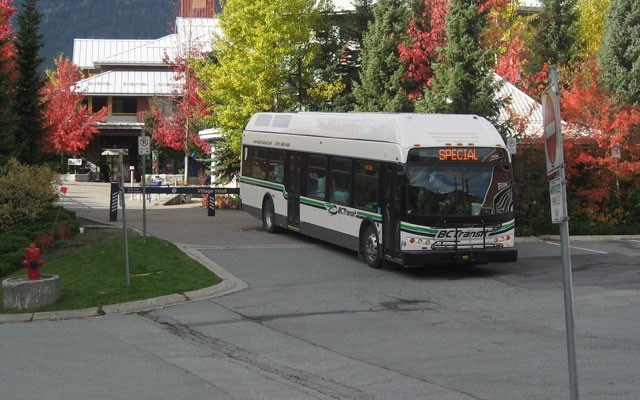Whistler's much-hyped hydrogen bus fleet could soon find a new home after BC Transit recently put the 20 zero-emission vehicles up for sale.
"BC Transit is exploring various options for the hydrogen buses which could include being either repowered or repurposed," read a statement released last week by BC Transit spokesperson Meribeth Burton.
BC Transit initially tested the waters in June of this year to determine if there were any potential buyers in the international market. A second Request for Expressions of Interest (REOI) was issued in August to explore the option of "repowering" the decommissioned fleet with an alternative fuel source, and found "sufficient market interest" to put the decommissioned buses up for purchase. The Crown corporation has not suggested a purchase price, and has reserved the right to reject any bids and keep the buses.
The $90-million fleet was rolled out five years ago as a way to showcase fuel cell technology and the so-called "hydrogen highway" stretching from San Diego to Whistler in time for the 2010 Winter Olympics. But facing escalating maintenance and fuel costs three times higher than diesel buses, BC Transit decided in late 2013 to pull the plug on the world's largest hydrogen bus fleet.
"We were disappointed that the demonstration project wasn't extended," said Eric Denhoff, president of the Canadian Hydrogen and Fuel Cell Association (CHFCA), who believes BC Transit, a corporation he once headed, doesn't have the same appetite for new technology as more forward-looking companies.
"A bus company isn't the right setting for patient technology investment," he said. "If they're basing it on what's good for the industry as a whole, they're going to make the decision on their narrow operating interests."
Fuel costs for brand new hydrogen buses have dropped by roughly 50 per cent compared to the original models, Denhoff added, highlighting a success story for the commercialization of hydrogen fuel, Ballard Power Systems, who had trouble garnering interest initially for their hydrogen technologies, but who now manufacture thousands of fuel cell engines a year for major corporate clients to use in their forklifts.
"You don't get the economies of scale in mass manufacturing to bring the prices down in five years," he said. "This project really was a longer term goal."
The project's costs were shared by the federal and provincial governments, the CHFCA and the municipality, although Whistler's $16.8 million share is equal to what it would have cost the RMOW to run a diesel fuel fleet over the same five-year period.
Bidding on the buses closes Dec. 19.




